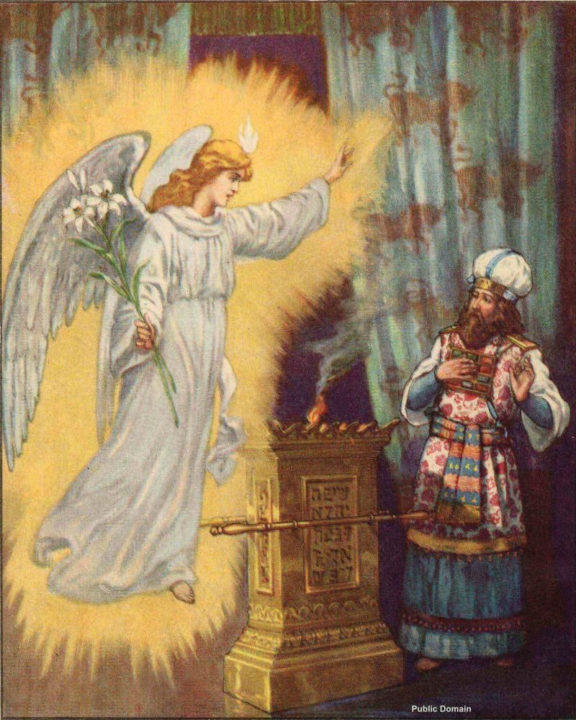[column width=”1/1″ last=”true” title=”” title_type=”single” animation=”none” implicit=”true”]
God Will Visit His People – Luke 1:68
In Luke 1:5 we are introduced to Zechariah and Elizabeth, the parents of John the Baptist. Like many couples in the Old Testament, they were childless and too old to have any children, yet Zechariah is told by the angel Gabriel that his wife will have a child, and the child will be a prophet in the power of Elijah, and that he will be the forerunner of the Messiah. Zechariah questions this prophecy, since it seems impossible to him. Gabriel therefore declares that Zechariah will not speak until the day that the child is born because he doubted the word of God. On the day the child was to be named, Zechariah was again able to speak, and we are told that the Holy Spirit filled him, and he prophesied the words recorded in Luke 1:68-79.

Luke emphasizes the fact these are the words of the Holy Spirit spoken through Zechariah to the people gathered for John’s circumcision. They would have all been familiar with the prophecies of the Old Testament concerning the coming of the Messiah. In this ten verse section there are at least sixteen allusions to the Old Testament, making it clear that John’s birth, and more importantly, the birth of Jesus three months away, would be the fulfillment of the hopes of Israel.
These words are spoken for John and about John, but John the Baptist was merely the forerunner of the Messiah. His role was to point forward to Jesus. Even in this solemn prayer of dedication at his circumcision, John is pointing the way to the Messiah. This section is centered upon the actions of God. With the birth of John, and later of Jesus, God “has come to his people.”
The word Zechariah uses for “has come” is literally “visited” (ἐπισκέπτομαι). The word has the connotation of an inspection or examination. Zechariah is saying that God is about to come to inspect his people. In the Old Testament, when God “visited” his people, it could be to bring them some sort of blessing, or it could be to bring the judgment. In Exodus 3:16 God has “observed” the suffering of his people (ESV, same word appears in the LXX), and in this case he is about to rescue his people from their slavery.
Zechariah’s words are therefore a prophetic warning that in the near future God would visit his people, and that “visitation” might not be a time of great blessing and favor. God may be visiting in judgment! There is an element of foreshadowing in Zechariah’s words: at the end of Jesus’ ministry he weeps over Jerusalem because they did not recognize that “this day” was the time of God’s “visitation” (ἐπισκοπή, a noun from the same root as 1:68). Sadly, the people did not heed the warning and were unprepared for God’s inspection.
This is what happened with the birth of Jesus: God has literally come to man. By becoming flesh Jesus was able to offer to his people ultimate forgiveness of sin. We do not usually associate the Christmas story with a time of God’s judgment, but it is significant that this first prophecy of Jesus’ ministry in Luke describes Jesus as the coming judge.
[/column]

